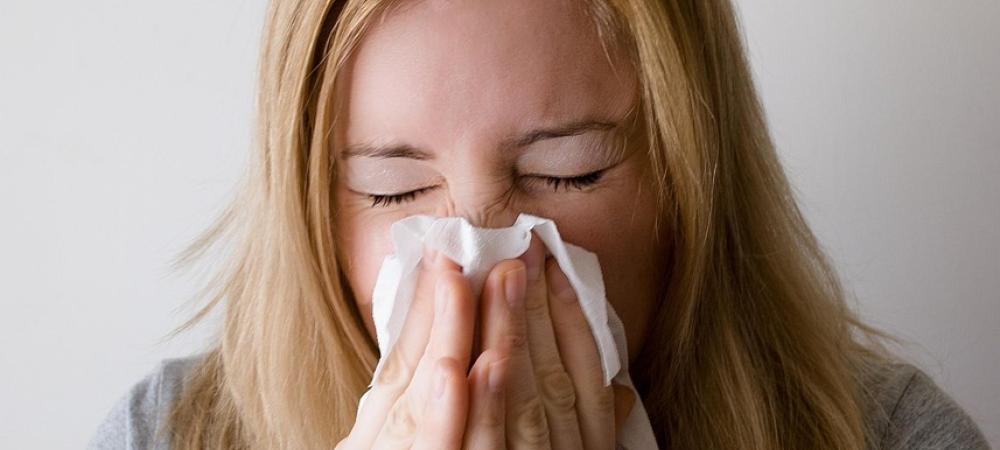Can Cockroaches Make You Sick?

When it comes to pests in your home, few are as unwelcome—or as unhealthy—as cockroaches. Beyond being a nuisance, cockroaches can actually pose serious health risks, particularly for individuals who suffer from allergies or asthma. For homeowners in North Carolina, where warm and humid conditions create an ideal environment for these pests, understanding the connection between cockroaches and respiratory health is crucial.
How Cockroaches Impact Your Health
Yes, cockroaches can potentially make you sick. They are known to carry bacteria, viruses, and parasites that can cause various health issues. For example, cockroaches can spread:
1. Allergies and Asthma
Cockroaches are more than just unpleasant to see—they carry allergens that can trigger respiratory issues. Their saliva, shed skin, droppings, and decomposing bodies contain proteins that can cause allergic reactions in some individuals. When these allergens become airborne, they can lead to respiratory problems, including:
- Allergic Rhinitis: Symptoms like sneezing, runny or stuffy nose, and itchy eyes.
- Asthma Attacks: People with asthma may experience wheezing, chest tightness, and difficulty breathing when exposed to cockroach allergens.
Children, in particular, are more susceptible to these reactions, and prolonged exposure to cockroach allergens has been linked to the development of asthma in children. In fact, the American College of Allergy, Asthma, and Immunology (ACAAI) reports that cockroach allergens are one of the most common indoor triggers for asthma. For those living in urban areas or older homes, where cockroach infestations are more prevalent, the risk is even higher.
2. Foodborne Illnesses
Cockroaches are known to carry a variety of harmful pathogens that can contaminate food and kitchen surfaces. They scavenge for food in unsanitary places, including garbage and sewage, and can transfer bacteria when they come in contact with food or cooking utensils. Some of the common bacteria they carry include:
- Salmonella: Often associated with food poisoning, it can cause symptoms like diarrhea, fever, abdominal cramps, and vomiting.
- E. coli: A bacteria that can lead to foodborne illnesses, causing diarrhea (sometimes bloody), stomach cramps, and vomiting.
- Campylobacter: A leading cause of bacterial gastroenteritis, causing diarrhea, abdominal cramps, fever, and vomiting.
- Dysentery: Caused by bacteria or parasites, dysentery leads to severe diarrhea with blood and mucus, often accompanied by abdominal pain, fever, and dehydration.
- Typhoid Fever: Caused by Salmonella typhi bacteria, it can lead to prolonged fever, weakness, abdominal pain, and digestive issues such as diarrhea or constipation. Typhoid fever is a serious illness that can require prolonged medical treatment.
Cockroaches can easily spread these bacteria through their movements on food preparation surfaces or by contaminating food directly. This is why it's essential to store food properly, clean areas where food is prepared, and keep cockroaches out of the kitchen.
3. Parasites
In addition to bacteria, cockroaches can also carry parasitic organisms. These parasites can cause infections in humans if they come into contact with food or surfaces that are later touched or ingested. Some of the parasites cockroaches may carry include:
- Tapeworms: Cockroaches can ingest tapeworm eggs from fecal matter or garbage, and then pass them along to humans through contaminated surfaces or food.
- Hookworms: These worms can infect humans through skin contact, but also via ingestion if contaminated surfaces come into contact with food.
Although parasitic infections from cockroaches are less common than bacterial ones, the potential risk still exists, particularly in areas where sanitation practices are poor.
Why North Carolina Homes Are at Risk
North Carolina's climate provides the perfect breeding ground for cockroaches. Common species like the American and German cockroach thrive in warm, humid conditions, making homes in the Tar Heel State particularly susceptible. Additionally, areas with dense tree cover or proximity to water—common features across North Carolina—can attract cockroaches seeking shelter and moisture.
Older homes and buildings, especially those with cracks in foundations, gaps in windows, or poorly sealed doors, are also prime targets for cockroach infestations.
When to Seek Professional Help
If you suspect a cockroach infestation in your North Carolina home, don’t wait! The longer they stay, the greater the health risks. Professional pest control services can provide a thorough inspection, effective treatments, and ongoing prevention to keep your home pest-free.
Breathe Easier with Local Expertise
Cockroaches are more than just a household nuisance—they’re a health hazard. Protect your family from the allergens and risks these pests bring by taking preventative measures and seeking professional help when needed.
As North Carolina homeowners, you don’t have to face these pests alone. As a trusted Wilmington pest control company, Bug-N-A-Rug Exterminators understands the specific challenges of our region and can help ensure your home is safe, healthy, and pest-free.
